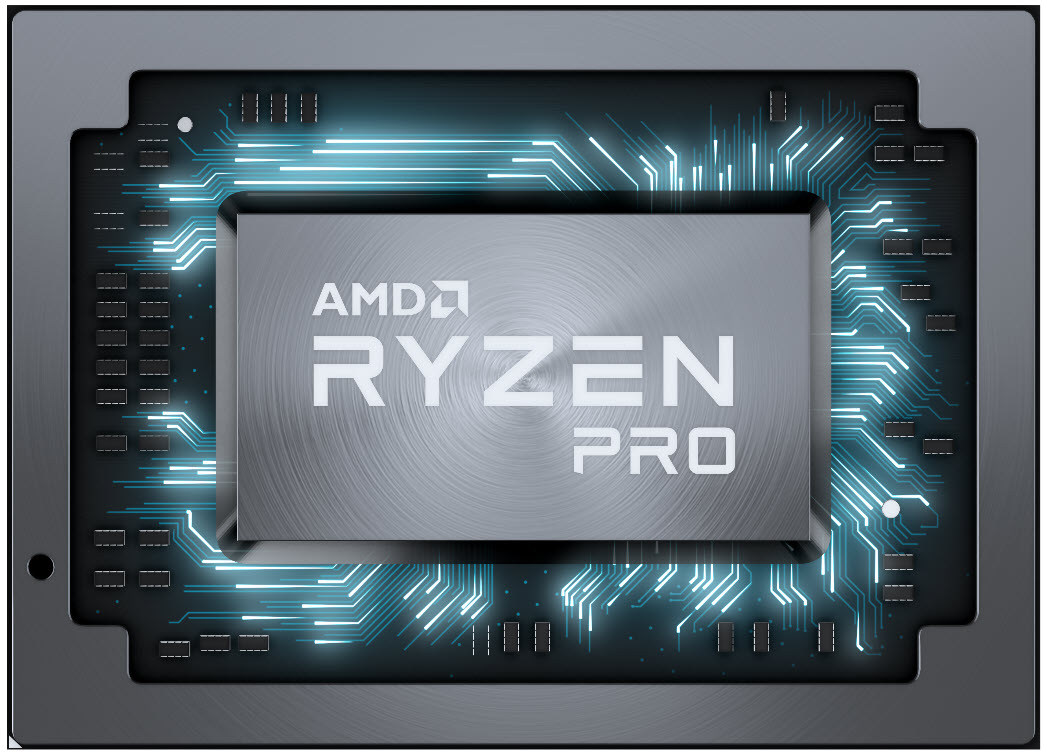AMD Announces Second-Gen Ryzen Pro and Athlon Pro Mobile Processors
AMD today announced its new Ryzen Pro Mobile series of chips designed for thin-and-light notebooks for the business and commercial markets. These new chips come with a bevy of features to satisfy the professional segment, but on the hardware side, they mirror the Picasso APUs that AMD announced at CES 2019. That includes the same core and thread counts, graphics engines, and TDPs.
AMD also brought its Athlon 300U to the Pro series to keep pressing its advantage in low-end laptops and Chromebooks while Intel is hamstrung with its ongoing chip shortage.
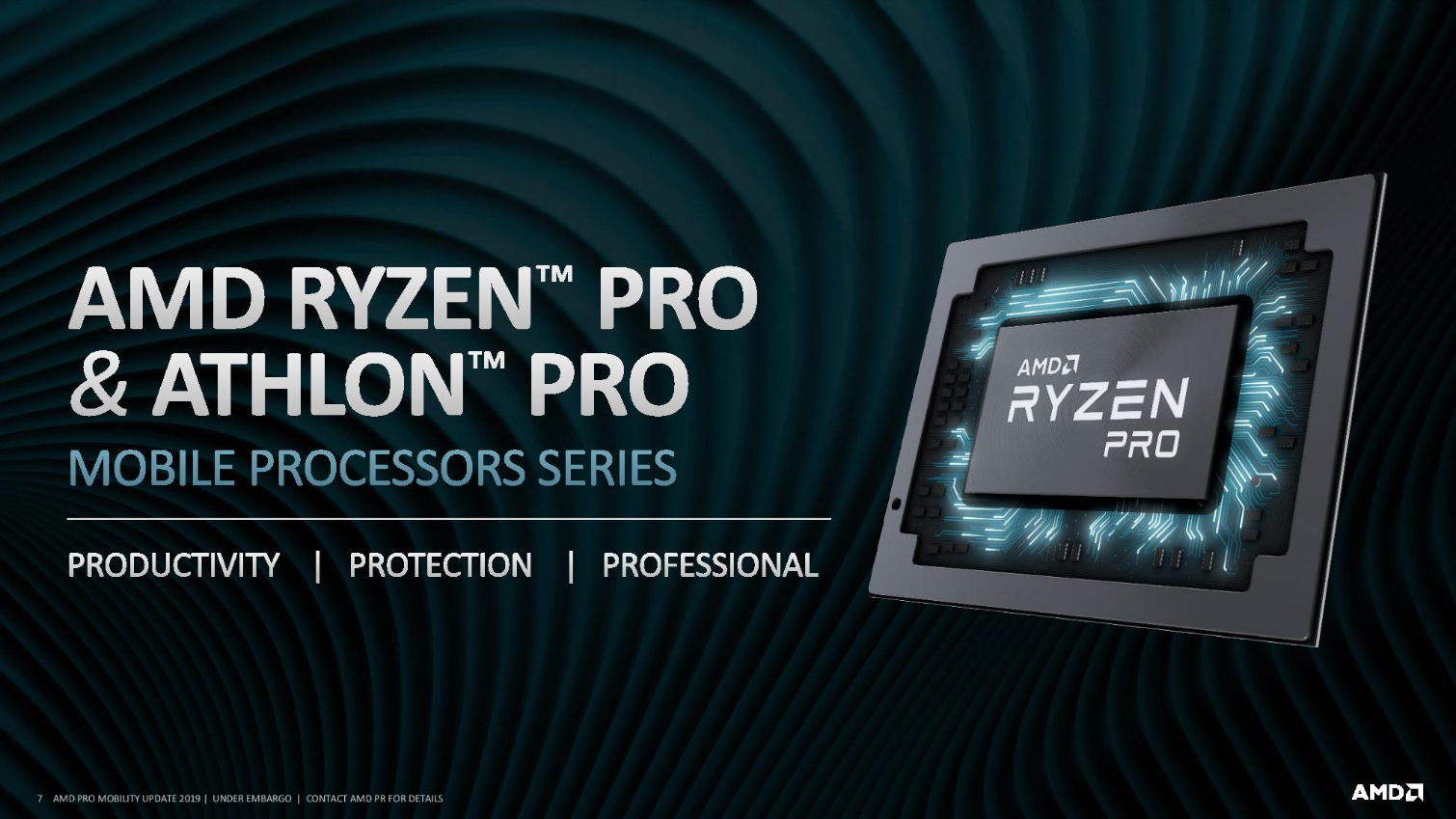
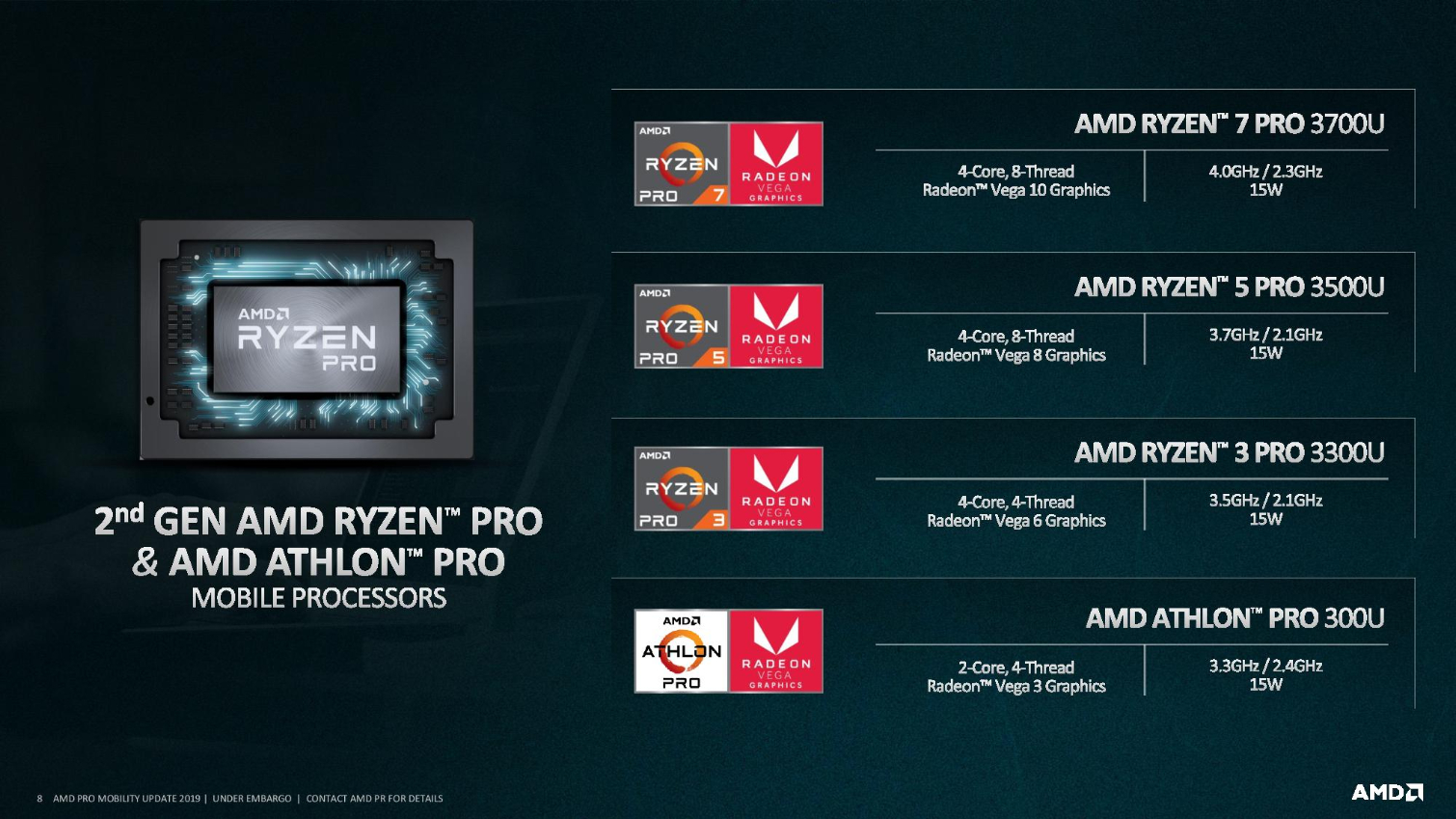
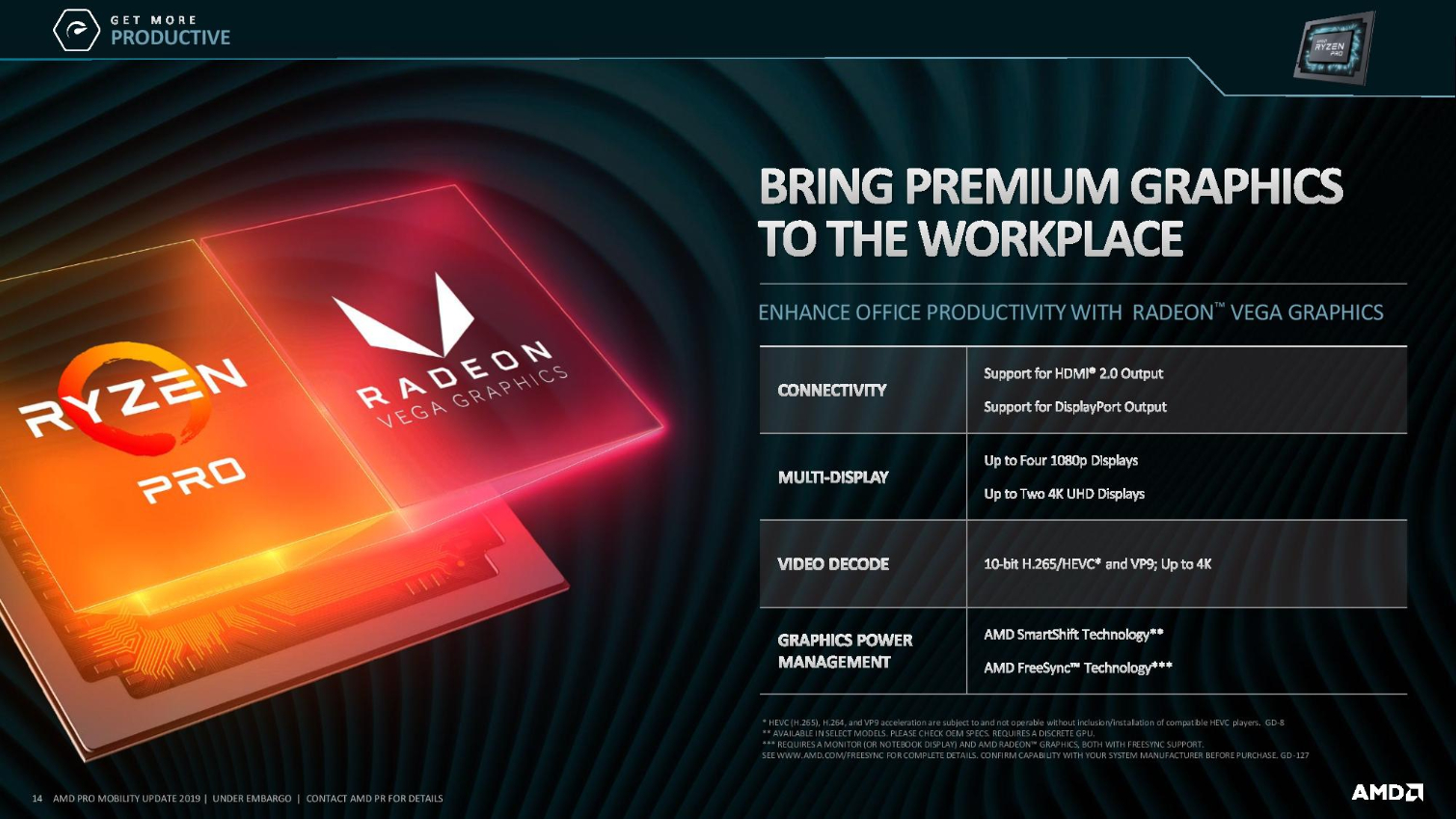
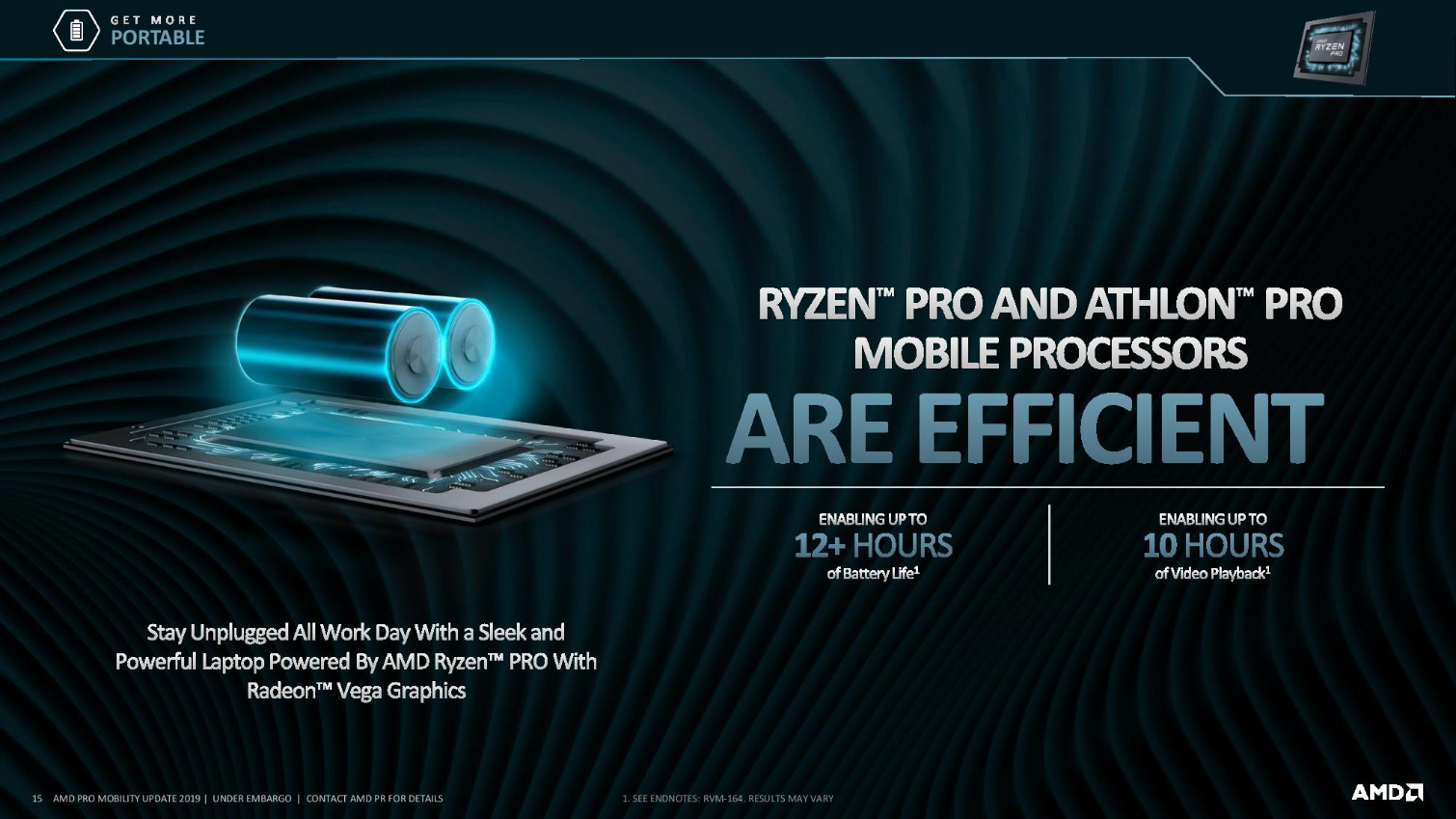
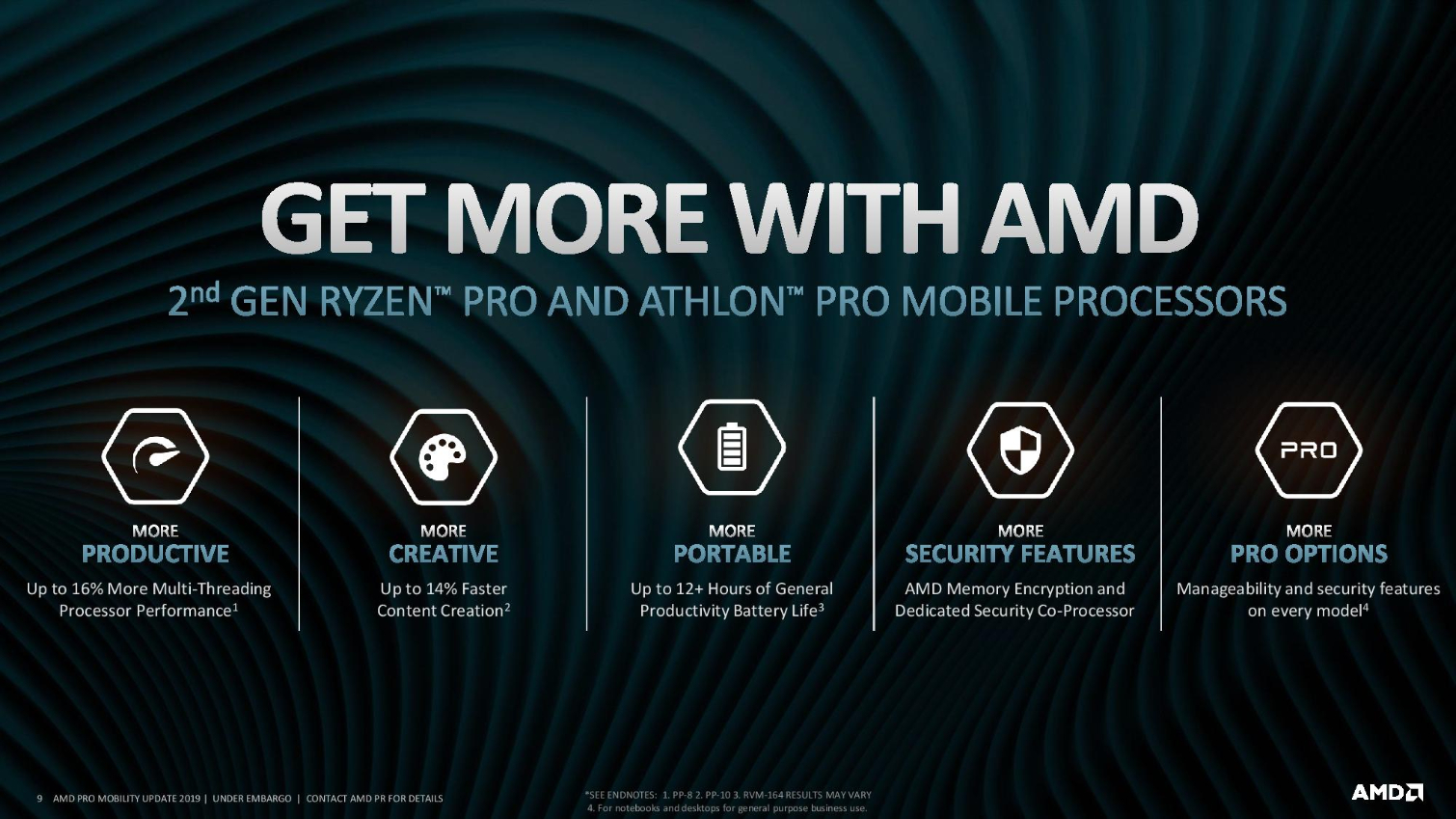
These new chips are essentially the same as the Ryzen Mobile 3, 5 and 7 processors that come armed with Zen+ CPU cores paired with Vega graphics cores in an SoC (System on Chip) design. As we’ve seen with the refreshed Ryzen Mobile models, AMD upgraded the cores over the first-gen Zen design.
| Row 0 - Cell 0 | Process | TDP | Cores/Threads | Base/Boost Freq. | Radeon Graphics | L2+L3 Cache |
| Ryzen 7 Pro 3700U | 12nm | 15W | 4/8 | 2.3/4.0 | Vega 10 (10 CU) | 6MB |
| Ryzen 7 Pro 2700U | 14nm | 15W (12-25W cTDP) | 4/8 | 2.2/3.8 | Vega 10 (10 CU) | 6MB |
| Ryzen 5 Pro 3500U | 12nm | 15W | 4/8 | 2.1/3.7 | Vega 8 (8 CU) | 6MB |
| Ryzen 5 Pro 2500U | 14nm | 15W (12-25W cTDP) | 4/8 | 2.0/3.6 | Vega 8 (8CU) | 6MB |
| Ryzen 3 Pro 3300U | 12nm | 15W | 4/4 | 2.1/3.5 | Vega 6 (6 CU) | 6MB |
| Ryzen 3 Pro 2300U | 14nm | 15W (12-25W cTDP) | 4/4 | 2.0/3.4 | Vega 6 (6 CU) | 6MB |
| Athlon Pro 300U | 12nm | 15W | 2/4 | 2.4/3.3 | Vega 3 (3 CU) | 5MB |
The Zen+ design includes more sophisticated multi-core boost algorithms that help in everyday use, along with reduced cache and memory latency. AMD also moved from the Global Foundries 14nm node to the 12nm process that provides higher clock speeds within a similar power range, even though it doesn’t have any density benefits (meaning the transistors still have the same dimensions).
The new process may not be smaller, but AMD optimized the processors to provide 100 to 200MHz of extra speed for the CPU cores compared to the previous-gen models. As with the last-gen Mobile Pro parts, the Ryzen 7 and 5 models come with four cores and eight threads, while the quad-core Ryzen 3 model comes without threading. The chips support DDR4-2400 memory.
AMD also brought its Athlon 300U to the Pro lineup. The dual-core four-thread chip opens up even more opportunities for the company in the low-end segment.
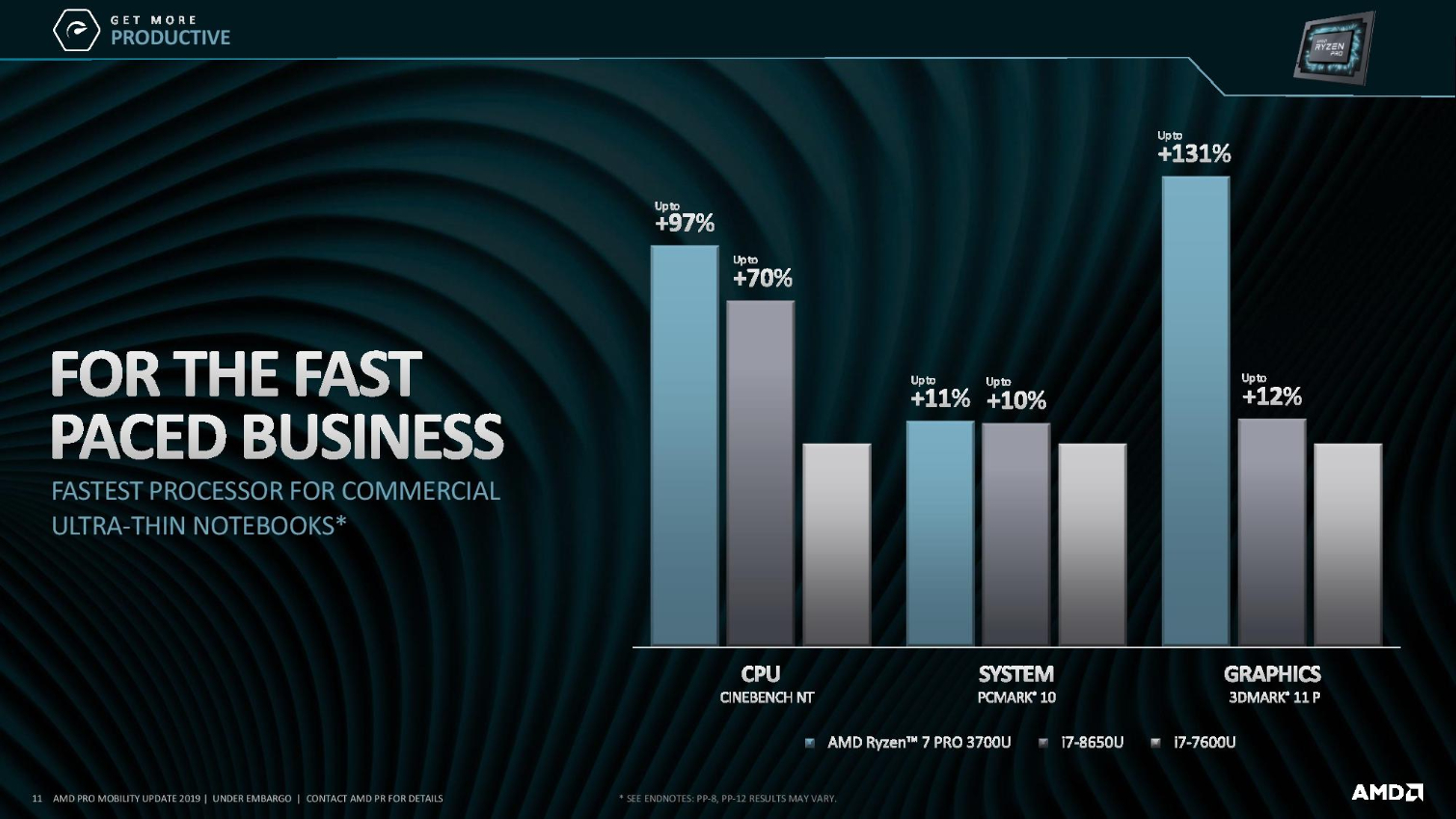
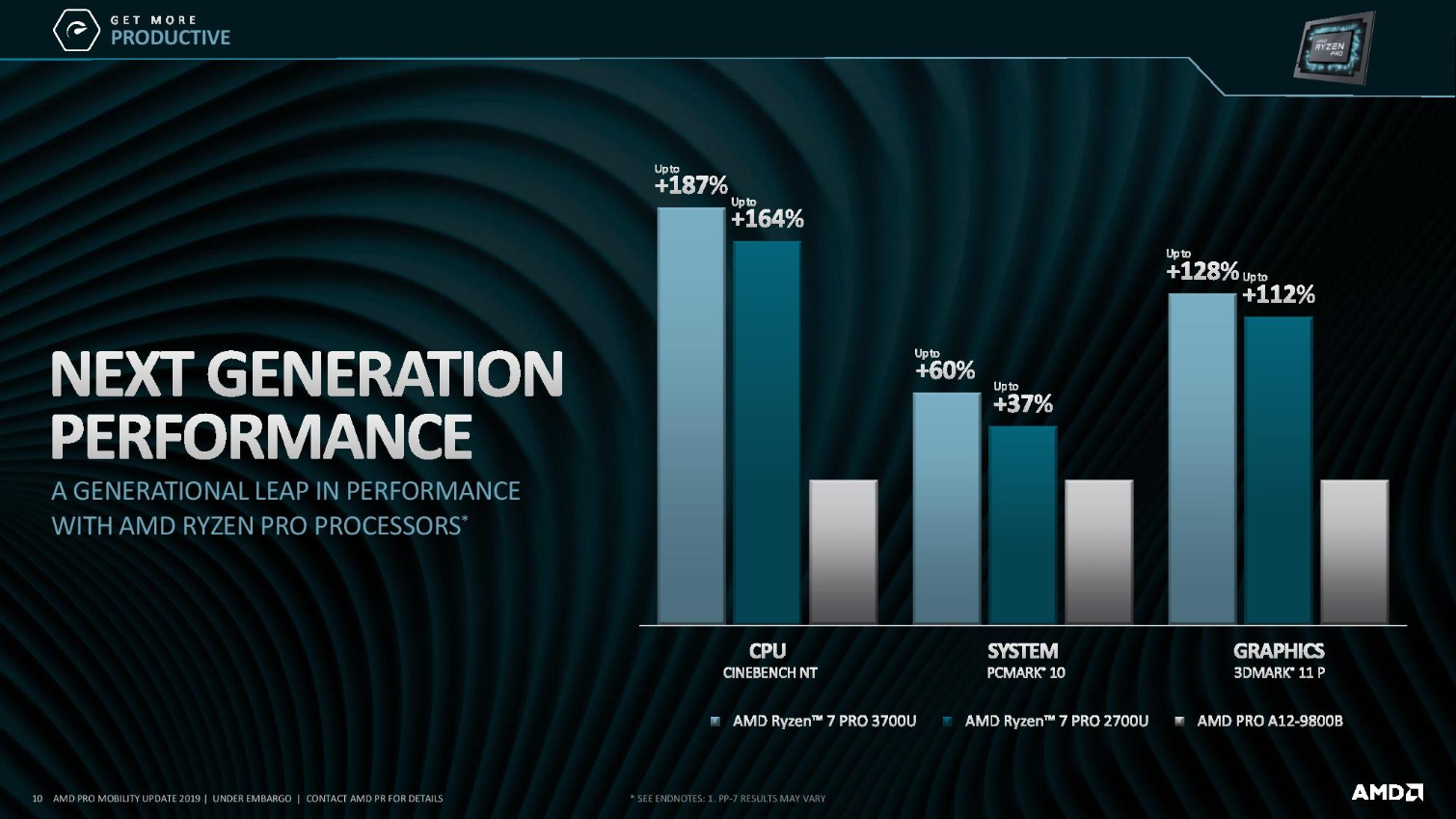
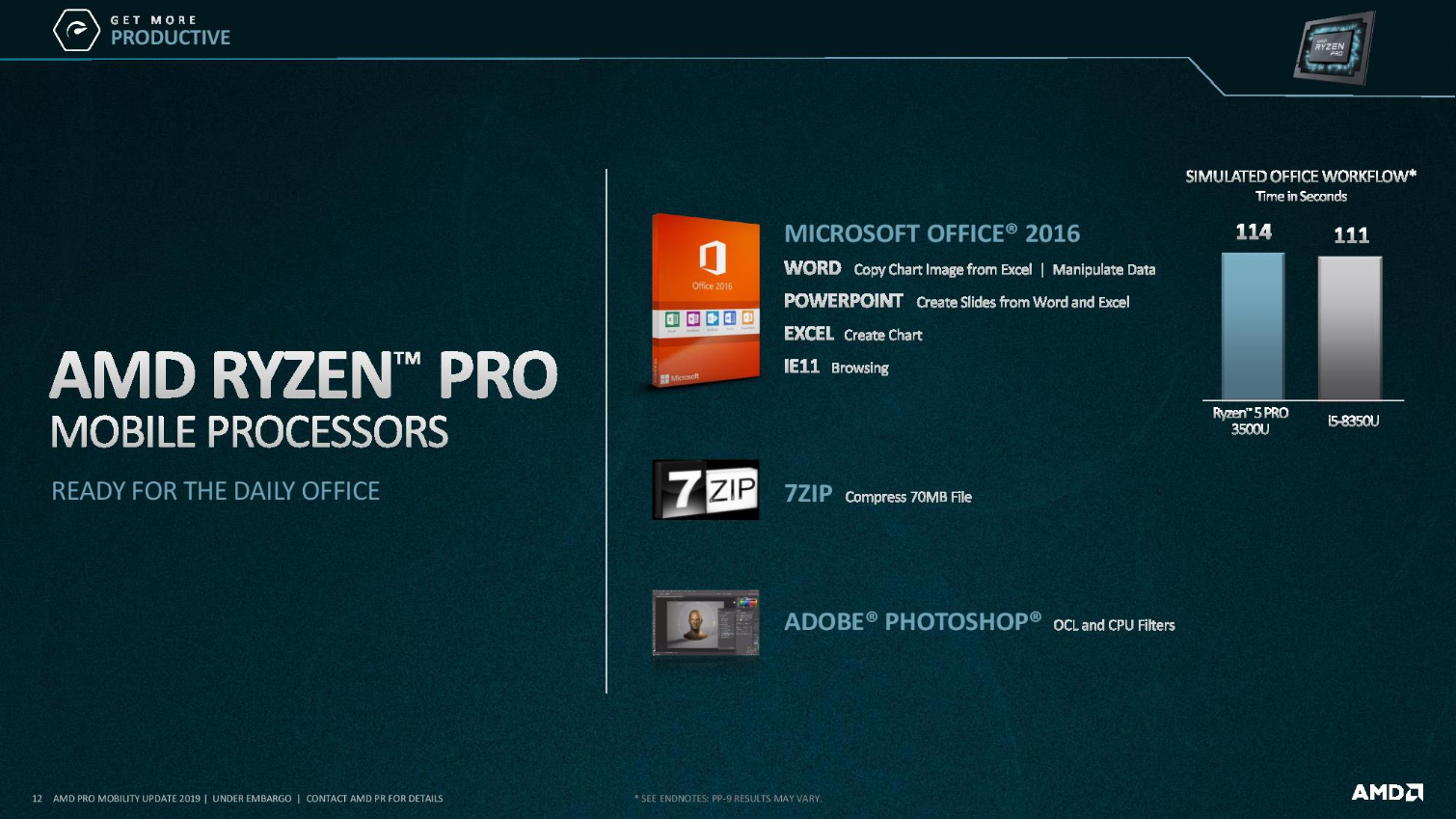
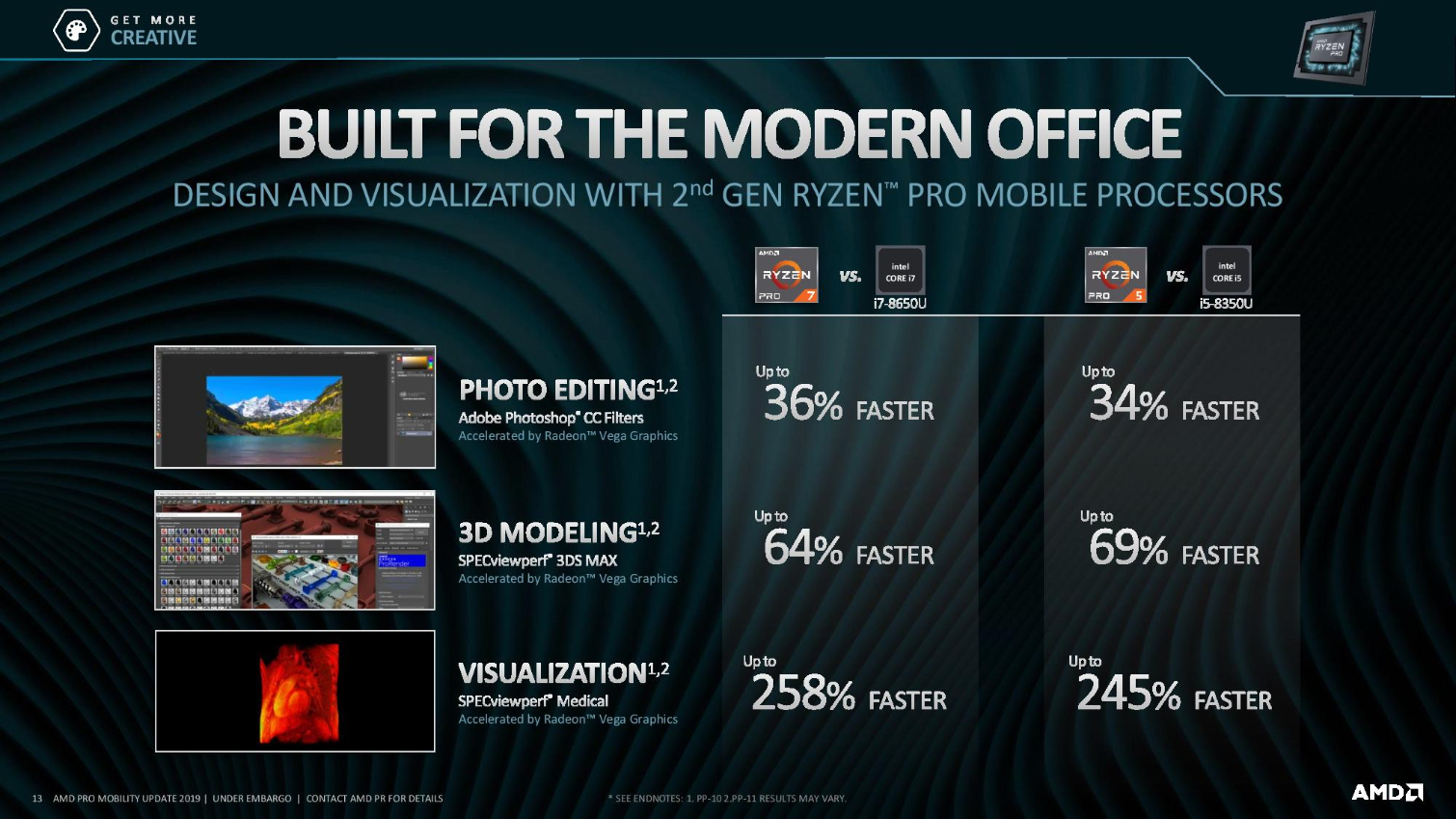
AMD provided several benchmarks against Intel's Core i7-8650U, i5-8350U, and the i7-7600U, claiming solid wins in Cinebench multi-threaded tests, PCMark 10, 3DMark 11, photo editing, 3D modeling, and visualization workloads. As with any vendor-provided benchmarks, take these with a grain of salt. AMD also claims 12+ hours of battery life during general productivity applications and 10 hours of battery life during video playback.
Get Tom's Hardware's best news and in-depth reviews, straight to your inbox.
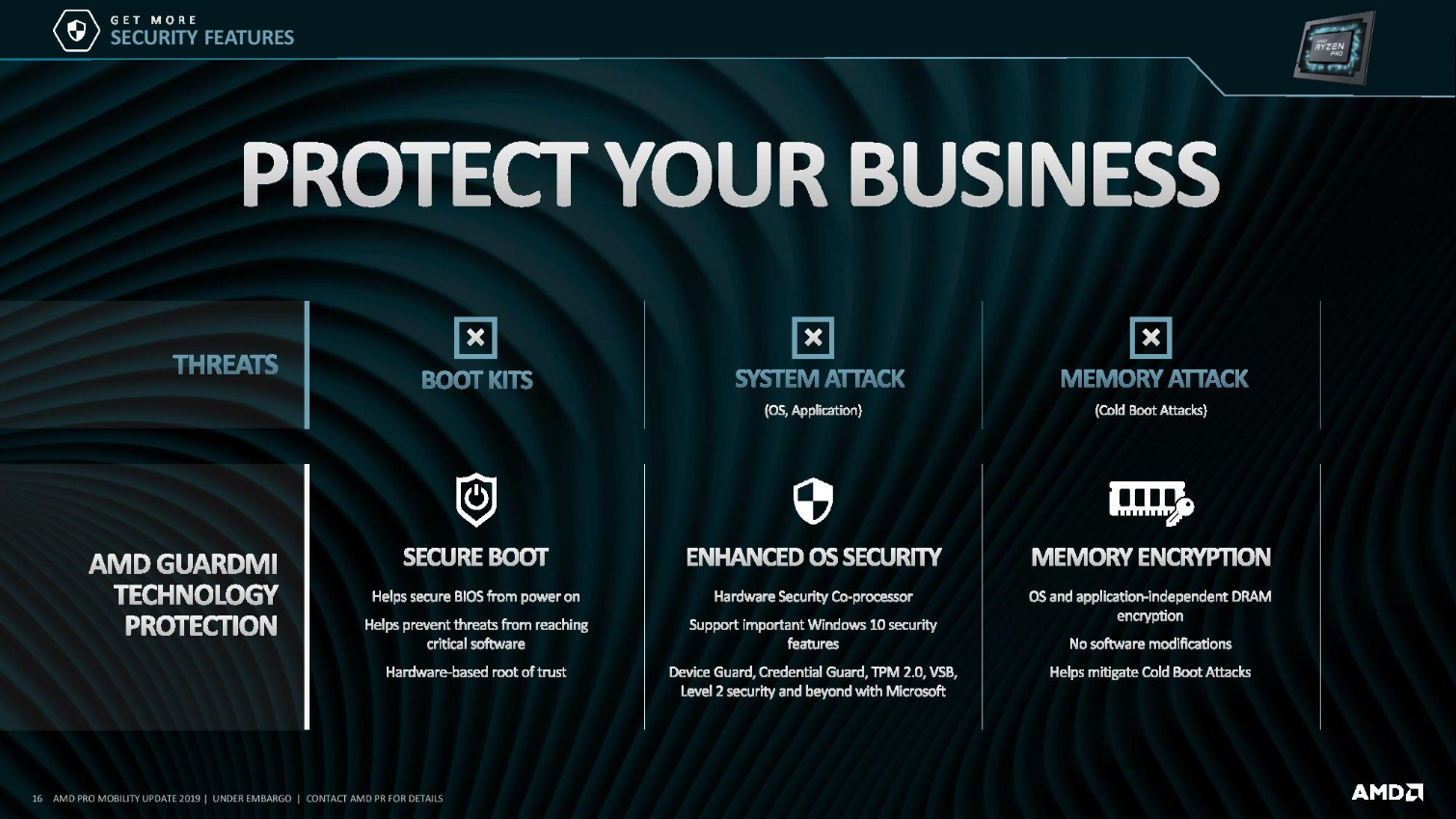

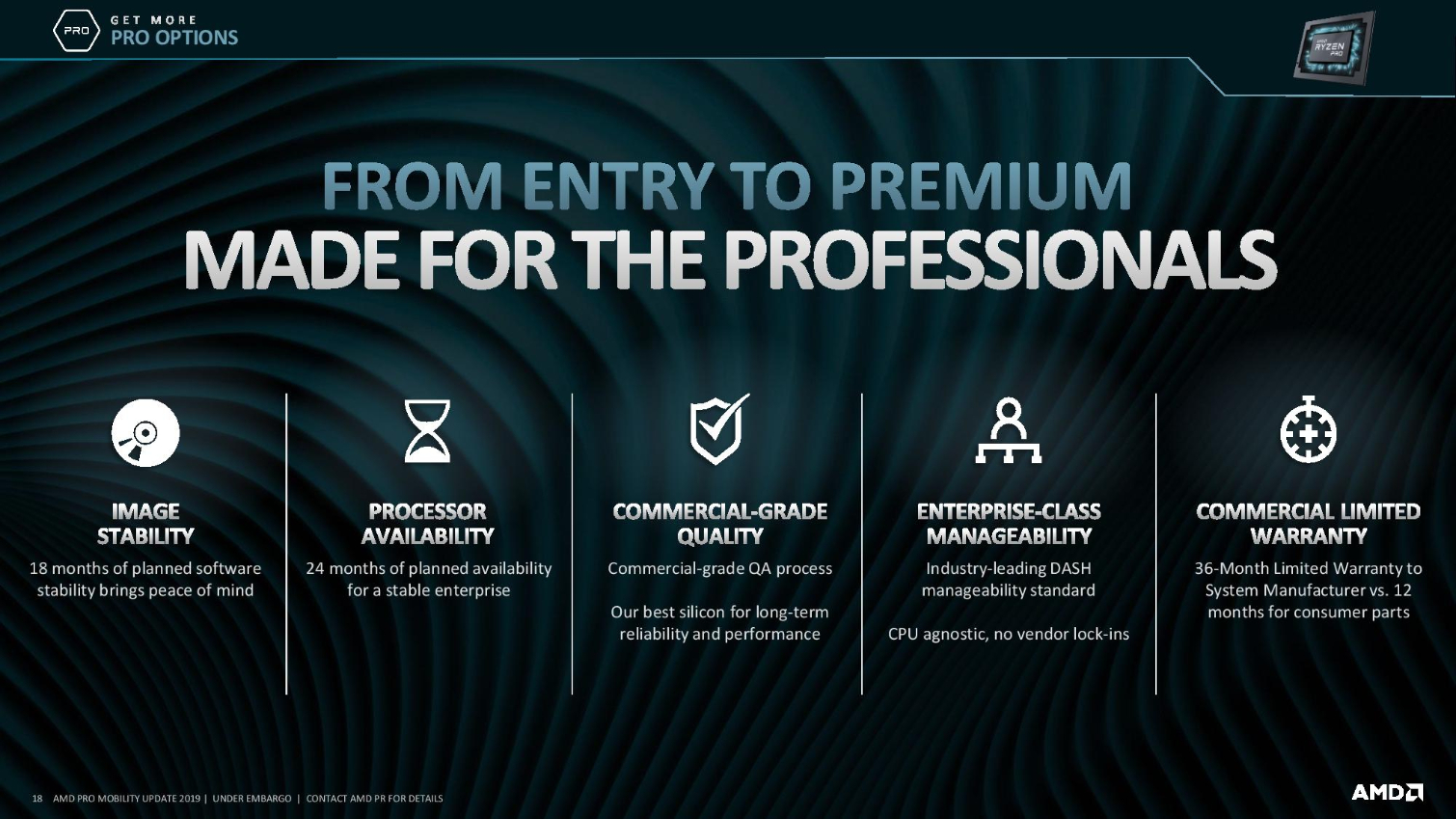
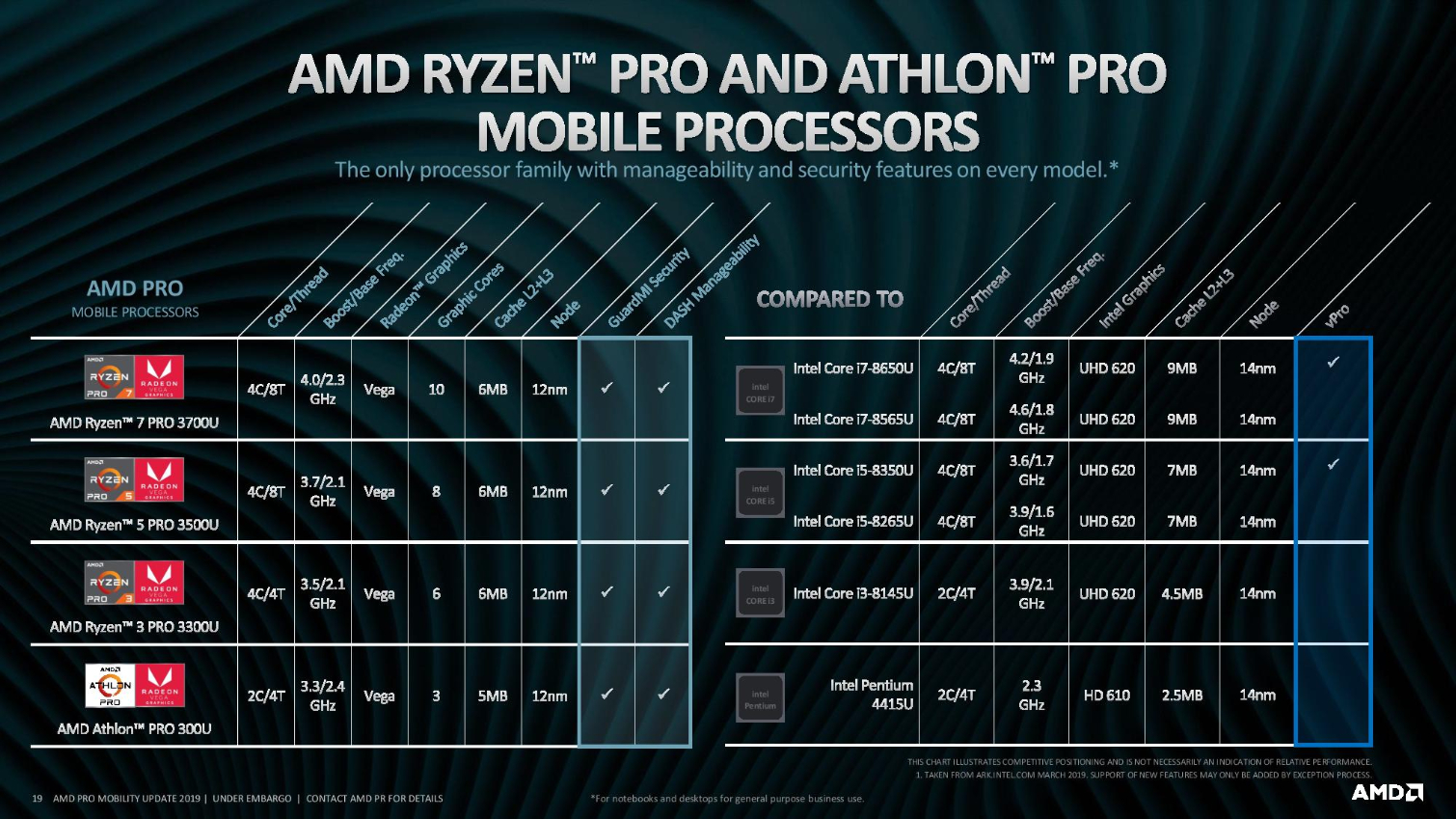
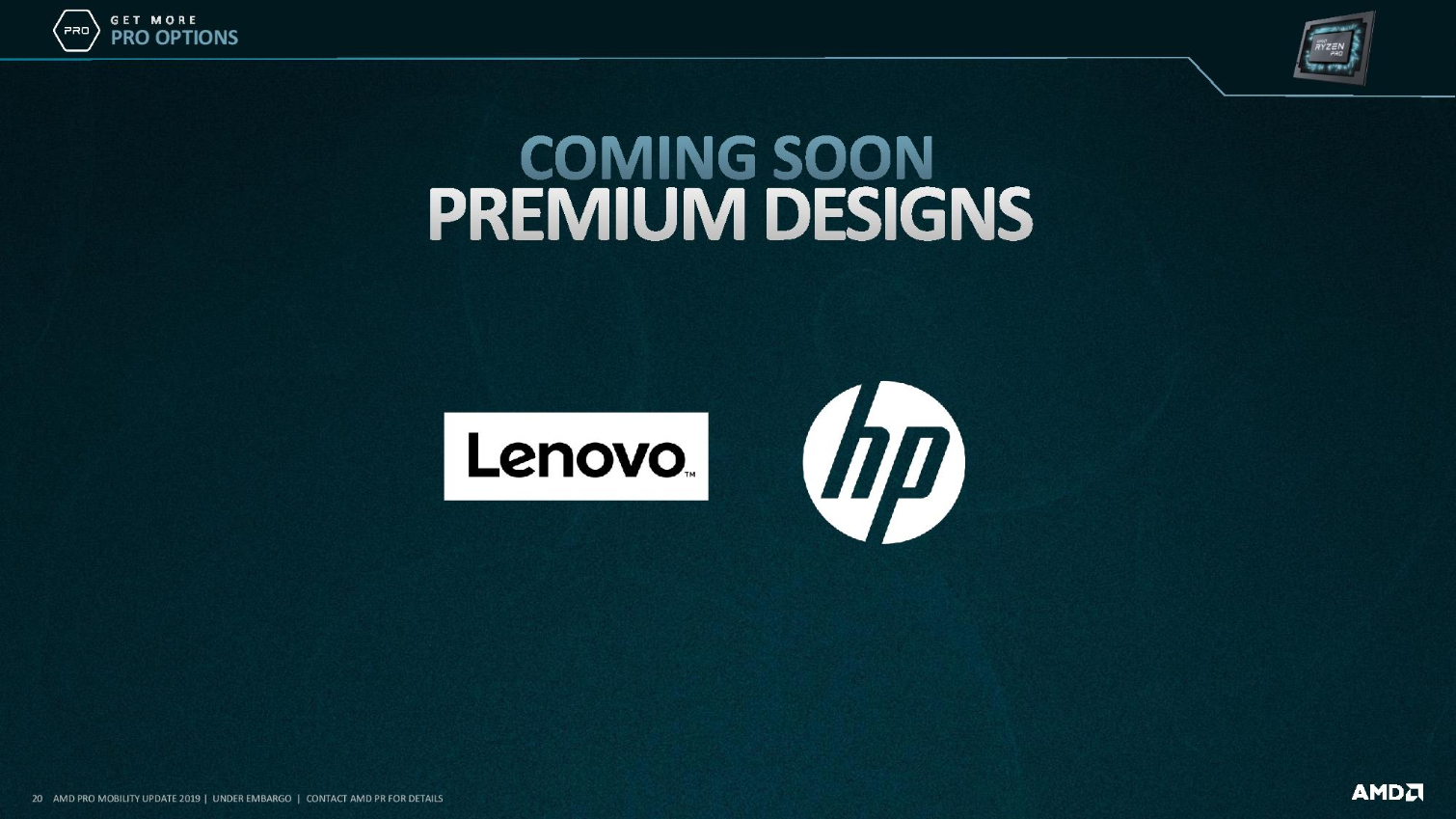
Like AMD's other Pro series Models, these chips feature the GuardMI suite that includes integrated cryptographic accelerators, such as the AES 128-bit encryption engine. The processors also support the full range of AMD's secure technologies, including Windows 10 enterprise security support and fTPM/TPM 2 (Trusted Platform Module). Ryzen PRO models include a sandboxed Secure Processor (co-processor) that manages security features. It provides a secure root of trust for the secure boot process and manages the Transparent Secure Memory Encryption (TSME) feature, among others.
The commercial market has unique requirements. Long-term availability assures that organizations can continue to procure processors for large deployments. This is important because these deployments leverage universal images. Image stability is also important because it guarantees drivers will remain unchanged for a period of time. This enables companies to use images over the long term. AMD guarantees 24 months of processor availability and 18 months of image stability.
AMD is also quick to point out that Intel segments its product stack by culling some features, like the vPro management suite, from its lower-priced SKUs, while AMD offers the same extras, like the Dash manageability suite, with every Pro model in its lineup.
AMD's Ryzen Pro processors are available now, and the company says to expect premium designs from Lenovo and HP soon. Curiously, the company did not include its new H-Series processors in the lineup, but we wouldn't be surprised to see new designs with the high-performance models come to market in the coming months.

Paul Alcorn is the Editor-in-Chief for Tom's Hardware US. He also writes news and reviews on CPUs, storage, and enterprise hardware.
